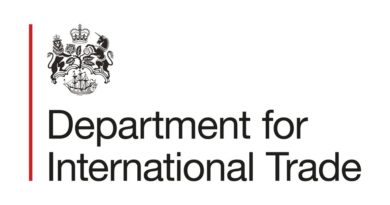PRESS RELEASE : Eddie George warns of dropping £ (2000)
The press release issued by the Conservative Party on 29 November 2000.
Eddie George warns of dropping £.
The euro would mean a return to the dark days of the 70s, warns Bank of England boss Sir Eddie George.
Workers face being thrown back to the dark days of the ’70s if Tony Blair dumps the Pound, Britain’s leading moneyman suggested yesterday.
Bank of England boss Sir Eddie George warned there could be tough rules on wage rises and higher taxes as the Government battled the inflation caused by a switch to the euro.
Experts said it would be just like the depressed ’70s when Britain was the sick man of Europe.
Then, the Government had to introduce rules to keep WAGES down as inflation soared to 26 per cent.
There was a year-long waiting list for MORTGAGES and HOLIDAYMAKERS were only allowed to take £50 out of the country.
Even getting a LOAN for a car, like the popular Ford Capri, became a problem due to restraints.
Unemployment rose to more than a million for the first time since the 1940s.
The crisis was fuelled by outrageous pay demands from hardline union bosses.
Britain ended up on a three-day week, there were picket lines and power cuts.
Then in 1976, Labour Chancellor Denis Healey went cap in hand for a loan of $2.3billion to the IMF to avoid bankruptcy.
Sir Eddie, giving evidence to the Treasury Select Committee, said that once Britain joined the euro “the techniques for influencing domestic inflation would have to look more to fiscal rather than monetary policy.”
He said that would bring about a “need to control inflation.”
His remarks are the clearest sign yet that he believes the euro zone’s one-size-fits-all economy – where interest rates are set for 11 countries by bankers in Frankfurt – would be a disaster for Britain.
Andrew Haldenby, of Business for Sterling, said: “In a few crisp sentences Eddie George has summed up the entire case against joining the euro.
“Giving up control of interest rates, the central lever of economic management, would take us back to 1970s-style tax rates and pay policies.
“If we had joined at the start, Britain would now be suffering a job-destroying inflationary boom.”
And Shadow Chancellor Michael Portillo said: “If we joined the euro, Britain would be forced into adopting these failed policies that produced boom and bust in the 1970s.”
Ireland has already been forced to strike a three-year wage restraint deal with unions after joining the euro. The country has seen its inflation rocket to a 15-year high of 6.8 per cent since it signed up.
Sir Eddie recently blew a hole in the PM’s drive to ditch sterling when he insisted Britain MUST keep the Pound. He told world bankers the UK is thriving and the Pound’s future is a purely political issue.
Mr Blair says the decision to join the euro will only be based on economics. This week a poll showed a record 71 per cent of Britons want to keep sterling.


